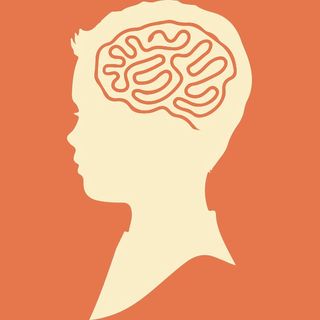
Sadness Ages Us Beyond Our Years
Divorce puts wrinkles in our brains.

After a death in the family, a serious medical crisis, financial hardship or a divorce, it’s not uncommon to feel aged — to feel that the experience has weathered you physically. Because research shows it has; this kind of toxic stress is associated with accelerated physical aging. It’s also associated with neural aging. A new study has found these negative life events appear to accelerate aging in the brain.
Writing in the journal Neurobiology of Aging, a research team at the University of California San Diego School of Medicine found that major adverse events in life, such as divorce, separation, miscarriage or death of a family member or friend, can measurably accelerate aging in the brains of adults, even when controlling for such factors as cardiovascular risk, alcohol consumption, ethnicity and socioeconomic status, which are all associated with aging risk. The study particularly focused on older men, between the ages of 57 and 66.
The researchers found, that on average, one major, negative experience was associated with an increase in predicted brain age difference of 0.37 years. In other words, a single adverse event caused the brain to appear physiologically older by approximately one-third of a year than the person’s chronological age, based upon magnetic resonance imaging (MRI).
The researchers asked 359 men, ages 57 to 66 years old, to tally a list of life-changing events over the past two years, which were compared to a similar measure collected five years previously. The summaries encapsulated stressful mid-life events that had occurred in the first two and last two years of the past seven years. All participants underwent MRI exams and further physical and psychological assessments within one month of completing the most recent self-reports.
The MRIs assessed physiological aspects of the brain, such as volume and cortical thickness — a measure of the cerebral cortex or outer layer of the brain linked to consciousness, memory, attention, thought and other key elements of cognition. These neuroanatomical measurements were then analyzed using advanced software to predict brain age.
Family trauma was particularly aging.
“Having more midlife [stressful events], particularly relating to divorce/separation or a family death, was associated with advanced predicted brain aging,” said Sean Hatton, PhD, the study’s first author.
Hatton said exposure to chronic stress has long been associated with biological weathering and premature aging, linked, for example, to oxidative and mitochondrial damage in cells, impaired immune system response and genomic changes. The study’s authors said their findings provide a possible link between molecular aging and brain structure changes in response to major stressful life events.
They do note that the study was a snapshot of a narrow demographic: older, predominantly white, males. It is not known whether women or other ethnicities would show similar findings.
Related


The Way Toxic Stress Shapes Children’s Brains
